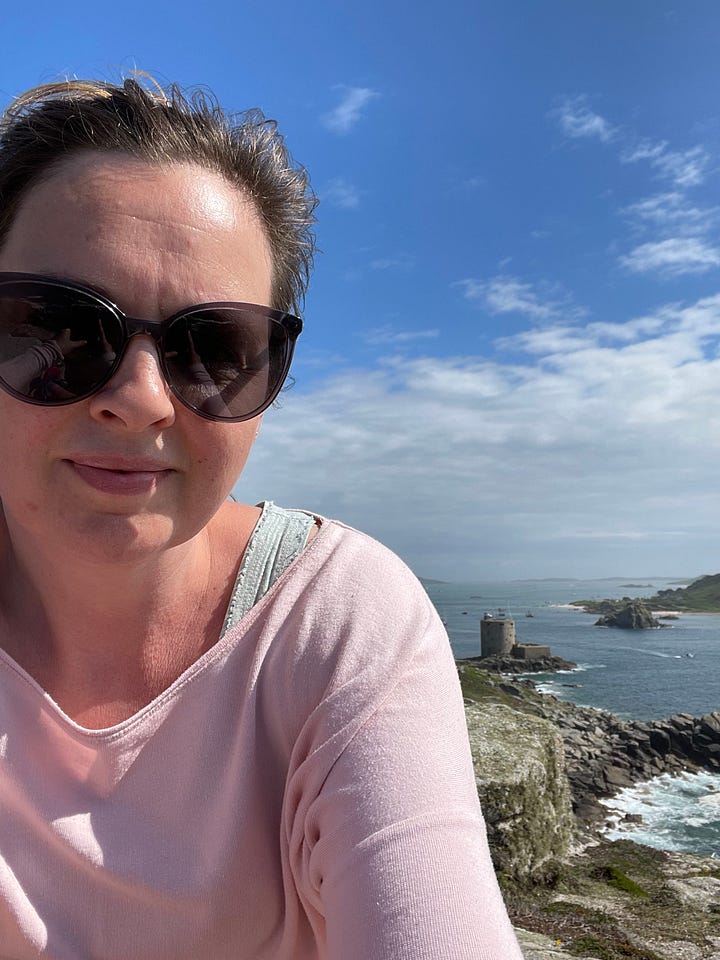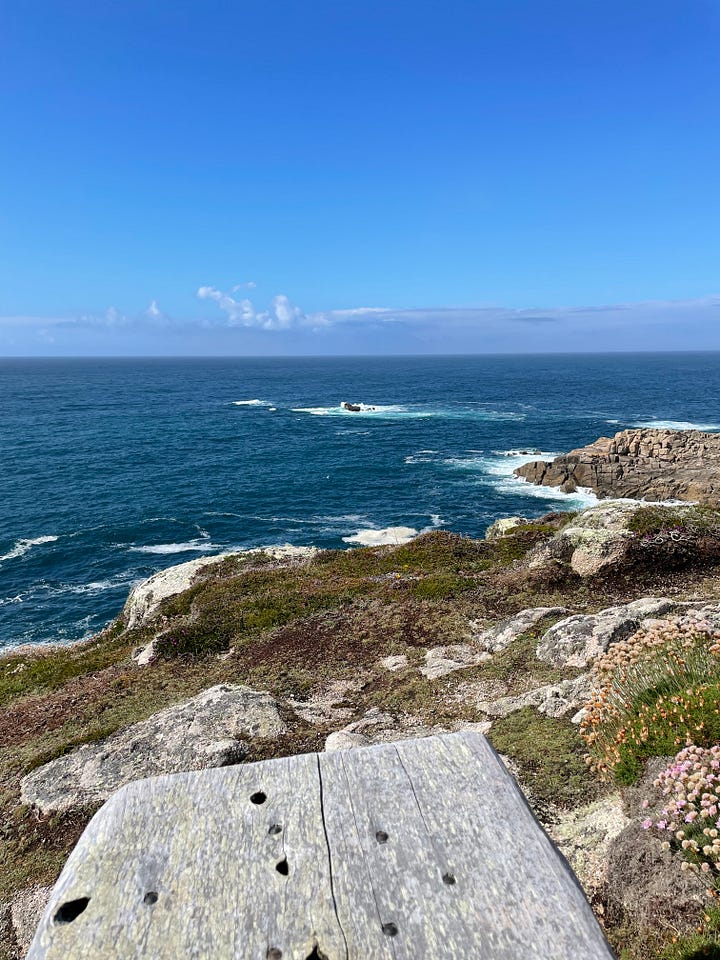At the end of 2021, I wrote a short piece on Instagram about coming to terms with not having any more children and being on a journey of accepting that we are a one (live) child family. Since then, a few people have reached out to say how helpful it was to hear someone talking about a grief that doesn’t really get any airtime, which further confirmed to me that this is an incredibly isolating and often misunderstood loss.
I’ve deliberated for many months (actually, more like years now) about what I am willing to share of this chapter in our lives. Social media has evolved exponentially since I started blogging back in 2016, and I am increasingly concerned about maintaining boundaries that protect my family. So, for that reason, there will be many things that will continue to remain vague. What I really want to discuss is the profound impact that things that are beyond our control can have on our reproductive story.
Because, in the words of Jaffe and Diamond (from their book Reproductive Trauma): This was not how it was meant to be.
But what even is ‘this’? Because there doesn’t seem to be a term that appropriately captures our situation. Since having our take home baby, I have never been pregnant again – nor even attempted to be. So, as far as we are aware, we cannot include ourselves alongside those who experience secondary infertility. I would also not describe us as ‘one and done’ through choice. So maybe ‘one and done by circumstance’ is a better fit?
The reality is that the last five years have been incredibly difficult. More than most people – even those closest to us – would realise. The trauma of losing Orla and navigating pregnancy and parenting after loss so soon afterwards had such a profound impact. The problem was, I didn’t even really realise myself.
In the early months, my mental health plummeted. But my unbelievably well refined coping modes kept my head afloat and meant everyone stayed away. I just did not have the language to ask for help. And people did not offer it. I had no support network to hold me whilst I held the baby who never slept alone. During the week I would spend 10 hours a day alone, often speaking with no other adult. I pounded the streets of South East London, pushing an empty pram and carrying my sleeping baby. I didn’t dare stop, just in case it ruined the nap, which could result in a complete unravelling of the day.
I knew that I was supposed to make mum friends, but all baby groups and attempts at socialising left me doubled over with excruciating stomach pain. The stress and anxiety of it all meant that I often needed the rest of the day to recover. I look back now and feel so desperately sad.
I so wish I could do it all again differently in some way.
I have vivid memories of walking around the park asking myself – ‘how do people know that they are ready for another child?’ Because it was something that I just couldn’t comprehend at that time. I felt as though I was failing in every direction and couldn’t imagine how I would ever be able to build myself up to do this again.
How do people know they are ready?
Then there were concerns. Ones I raised again and again with professionals, only to be advised that I should seek help for my own anxiety. The maternal gut instinct, that I was so desperately trying to build confidence in (one that is completely shattered after loss), was being gaslit at every opportunity. Well-meaning friends and family would say ‘don’t worry’, but worry I did. And actually, with good reason. Because after years of persistence, we were referred for further testing and eventually support.
And of course, all of this fell alongside a global pandemic, the collapse of our business and a big home move out of London. ‘Maybe next year’ became the soundtrack of our onward fertility journey.
At one point, NHS funded IVF and PGD was dangled like a carrot – in no way an easy, but certainly a somewhat reassuring, next step for us. But the clock was ticking, as in 11 months, I would turn 40 and this offer would no longer be an option. Tests were fast tracked. Results went in an unexpected direction and so IVF was taken off the menu of options and replaced with CVS at 16 weeks of any potential pregnancy. I briefly looked into private options and was humbled by the costs. We were lucky that we could make it happen if we wanted to – but did we really? And especially at this point in a pandemic, unvaccinated and anxious?
But also, that same question lingered - just how do people know that they are ready?
This all coincided with making applications for school places. Tears that very rarely fall began stinging my eyes at primary school tours, held online due to yet another lockdown. My baby was about to start school – and she still didn’t have a sibling.
I didn’t realise that this was an unconscious part of my own reproductive story: the desire to have children closer in age that the six years between me and my younger sister. To provide more than a sibling – a playmate, a friend, a confidante and ally that I didn’t have growing up. I realised that even if this was the year, even if it all happened and turned out okay, this was still not how it was meant to be.
Yet another ‘failure’ for me to chalk up.
However, by this point, we had more clarity. Some were reassuring, whilst others created more uncertainty for a future pregnancy. It could be possible – but was it right for us? A million-dollar question with no right or wrong answer.
And no one to make it for us.
I have since realised, through more therapy and the wise words of a friend and mentor, that I always make cognitively driven decisions – never emotionally driven ones. That part of me shut down a long, long time ago. I have always been ‘mature’, ‘a good girl’ and ‘sensible’. Code words for someone who lives life absolutely terrified of getting things wrong. Of someone who thoroughly researches in her mind the consequences of every decision she makes.
And this has consequences of its own.
By this time, we had been living in this torturous limbo for four years. Some other people had popped out two more babies within this timeframe. And yet here we were, deliberating and waiting for the thing that would help us to just know what the right decision was.
But that didn’t happen.
Then one day, on a beautiful walk on holiday to a familiar place we have visited many times, we realised - it wasn’t that we didn’t want it. Or that we wouldn’t cope if it happened.
It’s just that too much had happened over too long a period of time.
And this has become our mantra. Yes, we could have explored options. Yes, we could have tried. But every single option would come at a cost. Financially. Emotionally. Practically. And maybe in a different time, in different circumstances it would have been okay. But that was not our reality.
There was a moment on that walk, as we ventured up to a viewpoint and sat on the bench. A moment of peace. Of realising that we would be okay. It wasn’t how it was meant to be, but it was how it was. And how it was, would be okay. In that moment, I felt the weight of the decision lift from me and float off into the sea.
Don’t get me wrong, it’s not that in that moment everything became okay. But it was the beginning of letting go of the weight of the decision. It was leaning into the acceptance of the reality of our situation. If our story until then had been different, then maybe our family would be bigger.
But that wasn’t our story.
I have been back and done that walk twice since. I have sat on that bench and felt the familiar sense of relief. Two years on it feels lighter. Easier. There is still sadness and uncertainty. But these are transient visitors rather than permanent residents.
I sometimes wonder if I would feel more at peace if we had tried and it just hadn’t worked. That age old cliché of ‘they gave it their all’. Maybe people would have greater empathy and understand our grief more if we had just tried. Given it a go. Threw our time, energy and money at it.
Yet I strongly feel that this this wasn’t a free choice. This was an acceptance of our circumstances. We didn’t choose what life threw at us. We adapted to it.
Working through this, the most important thing we realised was that we were so happy. Genuinely happy with our lives, our little family unit. Our daughter who brings so much joy and energy to our lives - she is enough. She has always been more than enough. And I hope that if she ever reads this, she knows that and feels it deep into her bones.
I also realised that whilst this was also not how I had anticipated my reproductive journey would end, there is a particular stigma that comes with having a single child. The grief of not being able to choose your family size is hard regardless of the number of children you have. But having just one child is a very unique experience. The judgements and myths that surround only children are unfounded and yet pervasive.
That is another story for another day.


Today’s story is one of adapting.
Of letting go of an old story and being an active participant in writing another.
Of the ongoing and often invisible grief that comes with these losses.
Of the toll of being in the in-between and the relief in letting go of the decision.
And of understanding that acceptance is a journey with many chapters, not a destination.






This is such a beautifully judged and considered piece of writing, Michelle. Although our stories are different, I remember having similar thoughts as I pushed the pram. ‘How did people know they were ready? How on earth does anyone feel ready again?’ - especially when the second/third pregnancy announcements started to drop. Thank you for articulating this very interior experience and grief so well. X
Oof. I feel a LOT of this journey. Your experience feels very familiar to me - we have travelled a similar path in many ways... thank you for putting into words a lot of what my head hasn’t quite got to yet!